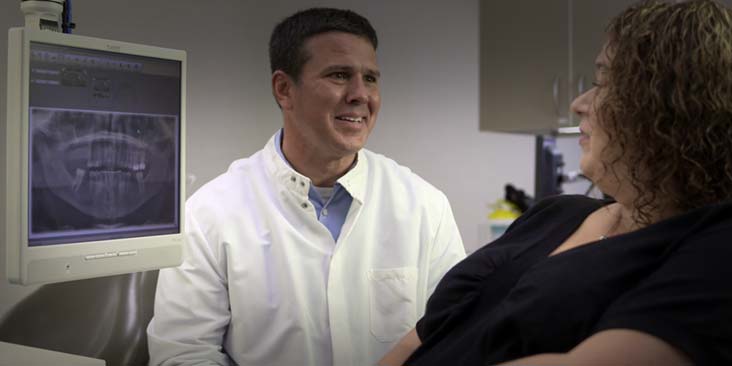
Dry Socket
What is a dry socket?
When your dentist or oral surgeon extracts a tooth, a blood clot is supposed to form to fill the area. This blood clot serves to protect the bone and nerve endings underneath the now empty tooth socket. A dry socket occurs when the blood clot at the site of extraction either does not form, dislodges, or dissolves before the wound can heal. When there is no blood clot in this area, the bone and nerves become exposed which is very painful. The empty socket then becomes more inflamed and may fill with food and other debris which can add to the pain.
How do I prevent a dry socket?
Dry sockets typically occur 1-3 days after a tooth is removed and is commonly seen after molars, such as wisdom teeth, are removed.
There are many risk factors that may increase your risk for a dry socket:
- Drinking with a straw after the procedure
- Tooth or gum infection
- Smoking and tobacco use
- Oral contraceptives
- History of dry sockets
Aside from these risk factors, it is important to carefully follow all home-care guidelines given to you by your doctor. By doing so, you can help prevent painful dry sockets.
How do I treat dry sockets?
If you are experiencing jaw pain after your extraction, call and schedule a follow-up visit with your doctor. They will be able to help flush out the socket and remove any food debris that can contribute to pain or infection. They may also pack the area with medicated gel or dressings to provide pain relief. If needed, your doctor will write a prescription for pain medication. At home, once the dressing is removed, you will be able to flush the socket using a plastic syringe provided by your doctor. By flushing the area with salt water, you will prevent more debris from filling the socket and causing more pain.
While dry sockets can be painful, they are common and are easy to treat. Once you receive additional treatment from your doctor, you will feel relief within a few days.
Our Services
Dental Associates offers complete family dentistry plus specialty services like orthodontics, oral surgery, and dental implants. Click to learn more.
Dental Associates Locations
We have over a dozen convenient locations in Wisconsin. From Kenosha and Racine, up through Milwaukee, Fond du Lac, and Appleton to Green Bay.

